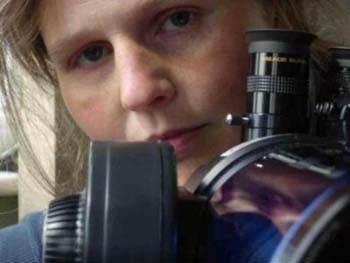It's ONLY Rocket Science

If you have satellite TV or a satnav in your car, you are benefiting from the hundreds of satellites orbiting the Earth which provide us with information about everything from weather forecasts to how to drive an unfamiliar route.
But have you ever wondered about the technology behind blasting a satellite into space? Rocket science is up there with brain surgery as topics most of us don’t even try to understand, but that could change if Lucy Rogers gets her way.
The former rocket scientist from Lancaster University is on a mission to enable Joe Public to get to grips with the science which has seen humans land on the moon.
You don’t even need a GCSE in Maths to be able to understand her book “It’s ONLY rocket science” which explains how to build a rocket in plain English – and without an equation in sight.
She said: “My book is aimed at a general readership and anyone with an interest in space. The ideas behind rocket propulsion are fairly simple but people are put off by thinking that you need to be a maths genius to understand it, but that’s not the case.”
She thought of the book while working for Starchaser Industries, which is based in Greater Manchester and the US, and which aims to open up space tourism to the public and to create commercial access to space.
Her book covers all aspects of spaceflight, from how to leave the Earth to life in space and the effects of weightlessness.
It is the latest venture in a portfolio career which Lucy has pursued since doing her PhD in Mechanical Engineering at Lancaster University in 2001.
Her interest in writing was sparked when she won a Media Fellowship with the British Association for the Advancement of Science. She spent a few weeks as the resident scientist at The Guardian in London and was hooked.
“It was fascinating and I loved getting to see how the media works from the inside. Scientists need to explain what they do to the general public and that’s how I see my role.”
Now a freelance science writer and journalist specialising in astronomy, spaceflight and engineering, her work has been published in the national media and she has her own website, as well as finding time to work as a computer consultant.
“I write scientific stuff in plain English. I hope to infiltrate the public’s consciousness by this devious and underhand method and make science fun for everyone.”
She has even written about why footballers hold their heads in their hands when they lose a match – suggested answers include the gesture mirroring a mother cradling an infant’s head in distress.
As a chartered engineer, she said she also wants people to realise that mechanical engineering is not about just getting your hands dirty.
“It’s a career which you can take you anywhere you want. As part of my final year project at Lancaster University, I spent 10 weeks in Nepal investigating the possibility of manufacturing and installing a cable car in a remote part of the country. I’ve worked at shipyards in Hong Kong. Engineers are in demand all over the world and I go into schools to tell pupils what a great career it is – for both genders. The skills required to be an engineer are not limited to men, and if we do not encourage both boys and girls to at least consider the profession, then we risk losing the engineers of the future.”
http://www.itsonlyrocketscience.com/
www.guardian.co.uk/science/2003/sep/04/thisweekssciencequestions1